MBA Deadline Dates You Should Know in September

September may mean that summer’s over, but it’s also a time to start to look forward to new beginnings! Stay on track of September MBA deadlines and get those mid-fall and winter program intake applications in. Continue reading…
Finding the Top MBA Employers in Washington DC
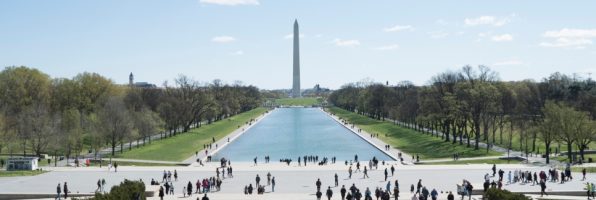
Students interested in earning an MBA and working in Washington DC will find no end to the opportunities available. Whether you are looking for opportunities at a governmental agency, a local business, or a massive international retailer, Washington DC—with 15 companies making the Fortune 500 list this year—can provide the perfect environment for MBAs at the start of their careers.
Georgetown’s Newest MBA Application Essays Have Been Announced
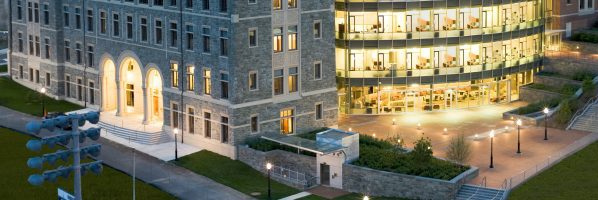
The Georgetown University McDonough School of Business recently announced its newest application essays for admission to its full-time MBA and all-new Flex MBA programs.
According to the business school, which announced the new essays on Thursday, August 15, “Applicants can now choose one essay among three essay prompts, allowing them to showcase what they believe sets them apart from other applicants, either their leadership experience, how they have overcome challenges, or their values and beliefs.”
Shelly Heinrich, the McDonough School of Business Interim Associate Dean for MBA Admissions, says, “It’s important to us to that our students represent a diversity of backgrounds, experiences, cultures, and more—and we realized that professional and personal experiences showcasing this diversity do not always fit neatly into a single essay prompt.”
“We want to give applicants the flexibility to distinguish themselves from a competitive applicant pool,” Heinrich adds.
Applicants may submit one of the three following Georgetown MBA essays during their application process, in 500 words or less:
- Describe a situation when you were asked to lead outside of your comfort zone. What leadership characteristics did you exemplify in this situation that allowed you to succeed?
- Describe a situation when failure has been your fuel. What was your failure (or when did you not succeed to your full potential), and how did you use this as motivation to move forward and be successful in a future situation?
- Describe the personal brand that you will bring to business school using examples or experiences that support how you’ve developed it. How do you believe your personal brand will strengthen the McDonough community? As you complete your MBA program, how do you hope to see your personal brand evolve through the transformative experience of business school?
Hopeful entrants to the Georgetown McDonough full-time and Flex MBA programs may apply on October 9, 2018; January 7, 2019; April 1, 2019; and May 1, 2019. Click here to learn more about the school, its MBA programs, and admissions process.
Are Business School Neighborhoods Becoming More Gentrified?
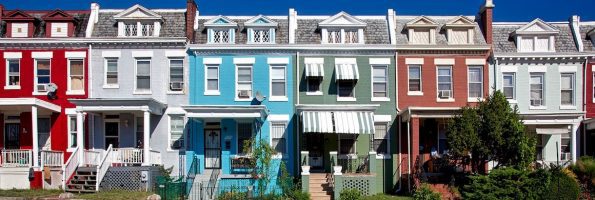
When universities are found in downtown urban areas, gentrification most often follows. It almost seems inevitable since universities bring in more individuals with higher education, draw in more money, and increase new businesses. But what does the rapid increase of gentrification statistics mean for the business school students looking to start their career in a new area?
What Is Gentrification?
First, we need to look at what gentrification is. In simple terms, it’s the influx of more affluent residents moving into urbanized neighborhoods. At the outset, it may sound good, but it can be controversial.
Gentrification may improve the financial quality of a neighborhood, but it can also force the relocation of current residents and businesses due to increasing costs. Often, the process of gentrification also shifts a neighborhood’s racial and ethnic composition, as well as the average household income. This can lead to community displacement for lower-income families in gentrified areas, some of which often live in the area for several generations.
However, there is a grey area. Gentrification happens when a location becomes increasingly attractive. At that point, more high-income individuals move into the area bringing in investments in the community and leading to improved infrastructure and economic development.
What Causes Gentrification?
According to a recent comprehensive review of gentrification completed by researchers at UC Berkeley and UCLA, gentrification most often occurs when more public transportation is available. People are more attracted to transit hubs because they allow more privileged groups to trade car commutes for transit and signal a large-scale commitment to neighborhood upgrading, which, in turn, leads to increased employment opportunities.
Another spur to gentrification is education. Quality schools, universities, colleges, and medical centers tend to shape gentrification. The substantial federal support that public universities receive brings money into neighborhoods through many means including housing and housing subsidies for faculty and staff. A CityLab study revealed that universities and other academic institutions are key to attracting the creative class, creating more market demand and political pressure for better amenities, schools, and other services.
Analyzing University Neighborhood Gentrification Statistics
Since universities have such an impact on gentrification, we thought we’d take a look at what areas and schools have been most affected. While gentrification is not something most urban areas should aspire for, it happens, and it’s important to know where it’s occurring the most.
To find out, we looked at a recent study by RentCafe of the most gentrified areas in the U.S. The study took a look at the 2000 Census and the 2016 American Community Survey to see the changes that took place over a decade and a half across 1,000 U.S. ZIP codes. The study found that there are easy ways to quantify gentrification statistics when looking at median home value, median household income, and the population that holds a bachelor’s or higher degree.
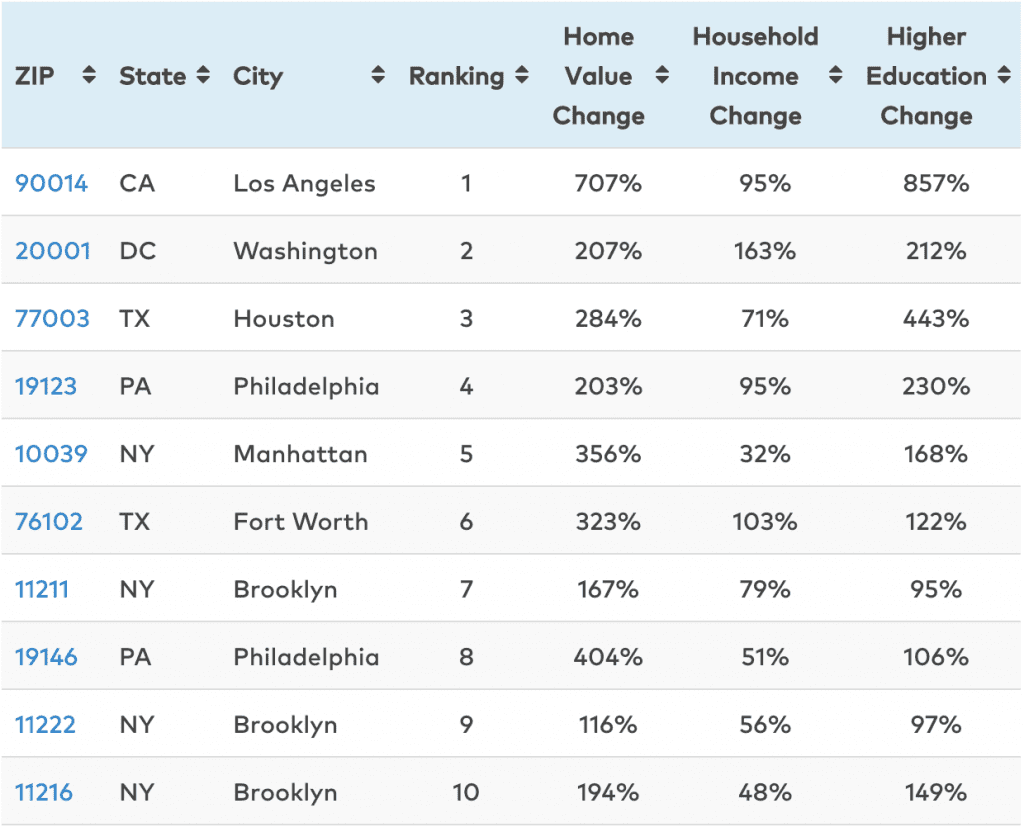
Based on the results of the study, we analyzed the top five MetroMBA universities in gentrified areas.
-
University of Southern California
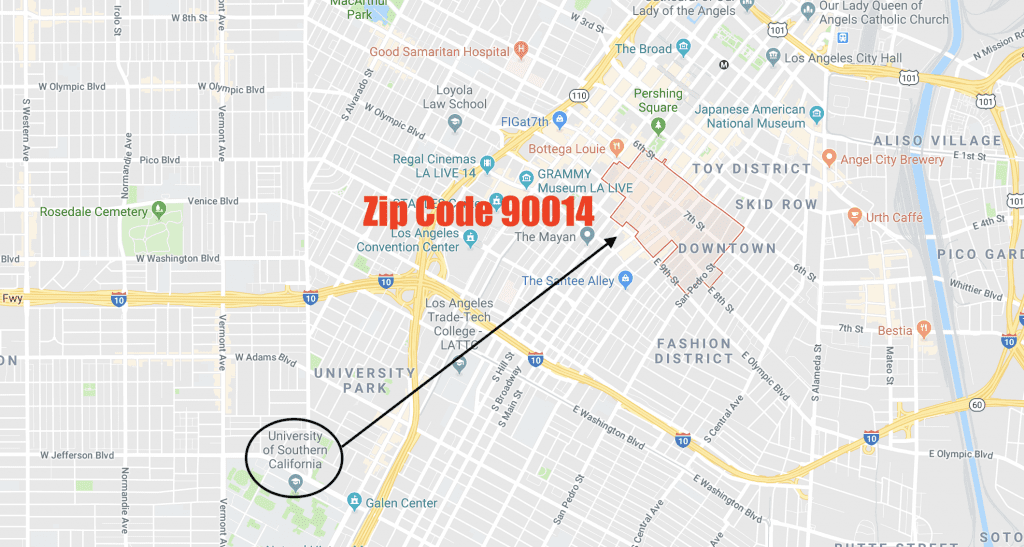
Located less than five miles away from ZIP code 90014 in Los Angeles, USC Marshall is just on the edge of the most gentrified area in the U.S. Over the last 16 years, this area has witnessed:
- A 707 percent increase in home values
- A 95 percent increase in median household income
- And an 857 percent increase in people holding bachelors or higher degrees
So, while some at USC might be fighting gentrification, it may not be working. Just last year, USC opened up a brand-new $700 million USC Village with a Target Express, Trader Joe’s, and 15 restaurants, transforming the surrounding neighborhood. And even though as part of the development USC provided $20 million for construction of off-site subsidized housing, there are still concerns.
“Across the street, land values are going to increase,” Joe Donlin, Associate Director of Strategic Actions for a Just Economy, told KPCC. “We know the landlords are going to rent at higher levels of rent.”
-
Howard University
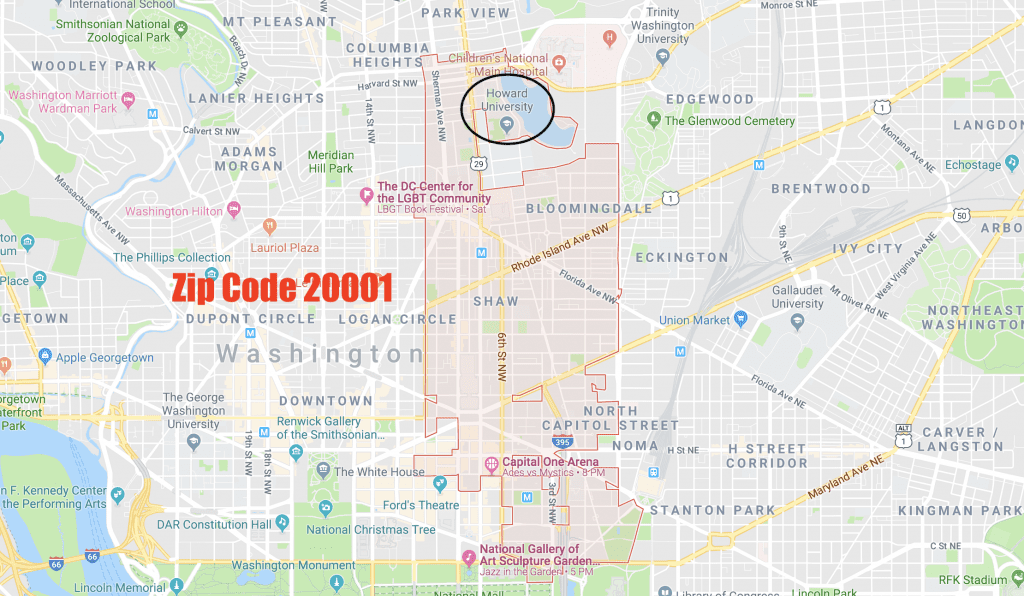
Located in Washington, D.C. Zip Code 20001, Howard University’s campus is located directly in the second most gentrified area in the U.S. Over 16 years, the area has witnessed:
- A 207 percent increase in home values
- A 163 percent increase in median household income
- And a 212 percent increase in people holding bachelors or higher degrees
The gentrification statistics of the Howard University area hasn’t gone unnoticed. According to NPR, there has been a drastic change:
“The area, located just a couple of miles north of Capitol Hill, was once working-class and black. But as hundreds of new residents move to D.C. each month, more non-black residents move into Howard’s neighborhood. And as property values rise, the university is trying to capitalize on the hot real estate market.”
-
University of Houston — Downtown
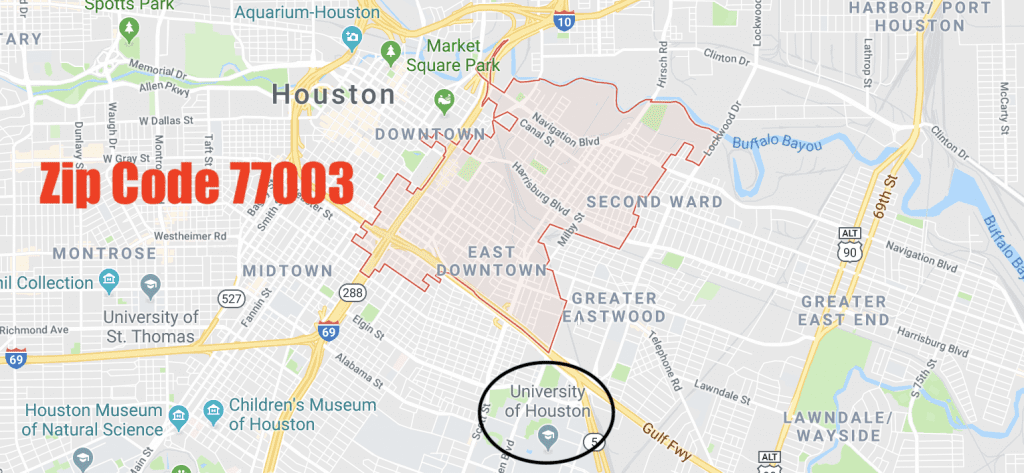
Located just steps away from zip code 77003, The University of Houston campus is located near the third most gentrified area in the U.S. In the last decade and a half, the area has seen:
- A 284 percent increase in home values
- A 71 percent increase in median household income
- And a 443 percent increase in people holding bachelors or higher degrees
Much of the gentrification can be laid at the university’s feet as its student housing footprint has expanded into surrounding neighborhoods over the last decades. According to the Houston Chronicle, “In the portion of the neighborhood closest to downtown, which includes Emancipation Park, median home values increased 176 percent between 2000 and 2013, according to an analysis of census estimates conducted by Governing.”
-
University of Pennsylvania
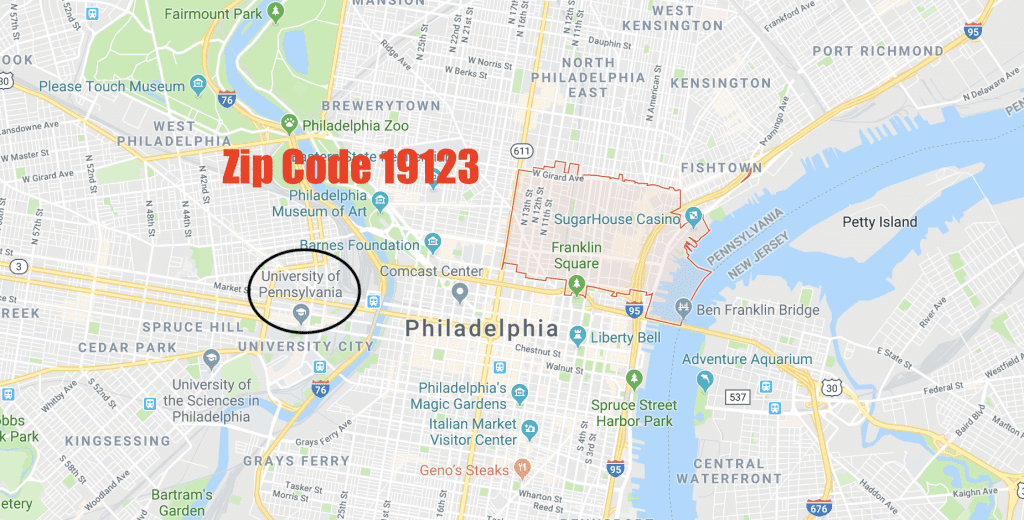
The Wharton School at UPenn is less than five miles outside the fourth most gentrified neighborhood in the country: zip code 19123. This area, over the last 16 years, has noticed:
- A 203 percent increase in home values
- A 95 percent increase in median household income
- And a 230 percent increase in people holding bachelors or higher degrees.
In fact, UPenn has had a complicated history with gentrification over the years, dubbed Penntrification by some. The problem, according to The Daily Pennsylvania, is that in West Philadelphia Penn students’ demand for housing is displacing low-income families. There have even been protests criticizing the university for causing gentrification in the area.
-
Texas Christian University
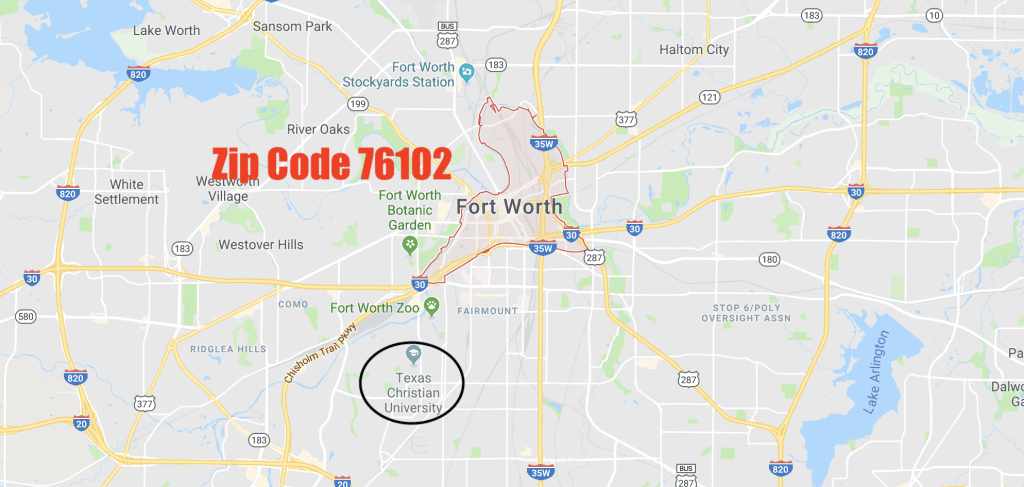
Fort Worth, TX, contains the sixth most gentrified area in the U.S.; just two miles away from Texas Christian University (TCU). Over 16 years, the area has witnessed:
- A 323 percent increase in home values
- A 103 percent increase in median household income
- And a 122 percent increase in people holding bachelors or higher degrees
While Fort Worth’s growth has brought new life to the city’s urban core, it’s also sky-rocketed property values. In particular, the areas around TCU are growing quickly. The university recently completed a $100 million renovation for its football stadium—just five years after its last overhaul, which reportedly cost $164 million.
Don’t Forget These August MBA Deadlines

While many prospective business school students are in the midst of relaxing during the apex of summer, a handful of application deadlines are on the horizon near the start of the next academic year. Here are the August MBA deadlines you need to know!
Forté Announces New MBAExplore Program for Pre-MBA Women

Deciding whether or not you want to go to business school to earn your MBA is not usually a spur-of-the-moment decision. There are a lot of questions you need to answer first. Is an MBA the right degree for you? How will it impact your career? Does it make sense financially? To help women who may be considering these and other questions, the Forté Foundation recently launched its new MBAExplore program. The deadline to apply is July 8th.
This half-day program gives women the opportunity to learn more about what an MBA is and isn’t. It takes women on an intimate exploration of the myths and questions surrounding business school to help them map their journey to the MBA. Women who have already traveled the MBA path teach the program, sharing their first-hand experience with participants.
Inside MBAExplore

The MBAExplore program provides valuable information around each of the following topics:
- Taking and passing the GMAT
- Financing and affording the MBA
- Understanding the classroom case study
- Figuring out if the MBA is right for you
Throughout the half-day, participants will have a chance to learn about the daily life of an MBA student. There will also be an opportunity to ask questions of business school staff as well as current MBA students. The goal is to provide every participant with the information they need to determine if the MBA is right for them.
The MBAExplore program is the precursor to Forté MBALaunch, a 10-month program designed to help prospective women business school applicants build their b-school applications. MBAExplore is all about helping women gain the confidence, guidance, and information they need to take the first step toward their MBA degree. Learn more here.
Register Today
Registration ends July 8, 2018, and the MBAExplore program will be held in Washington DC on August 13, 2018, and New York City on August 28, 2018. You can register now for just $49 at the location of your choosing. Space is limited. Don’t miss out.
